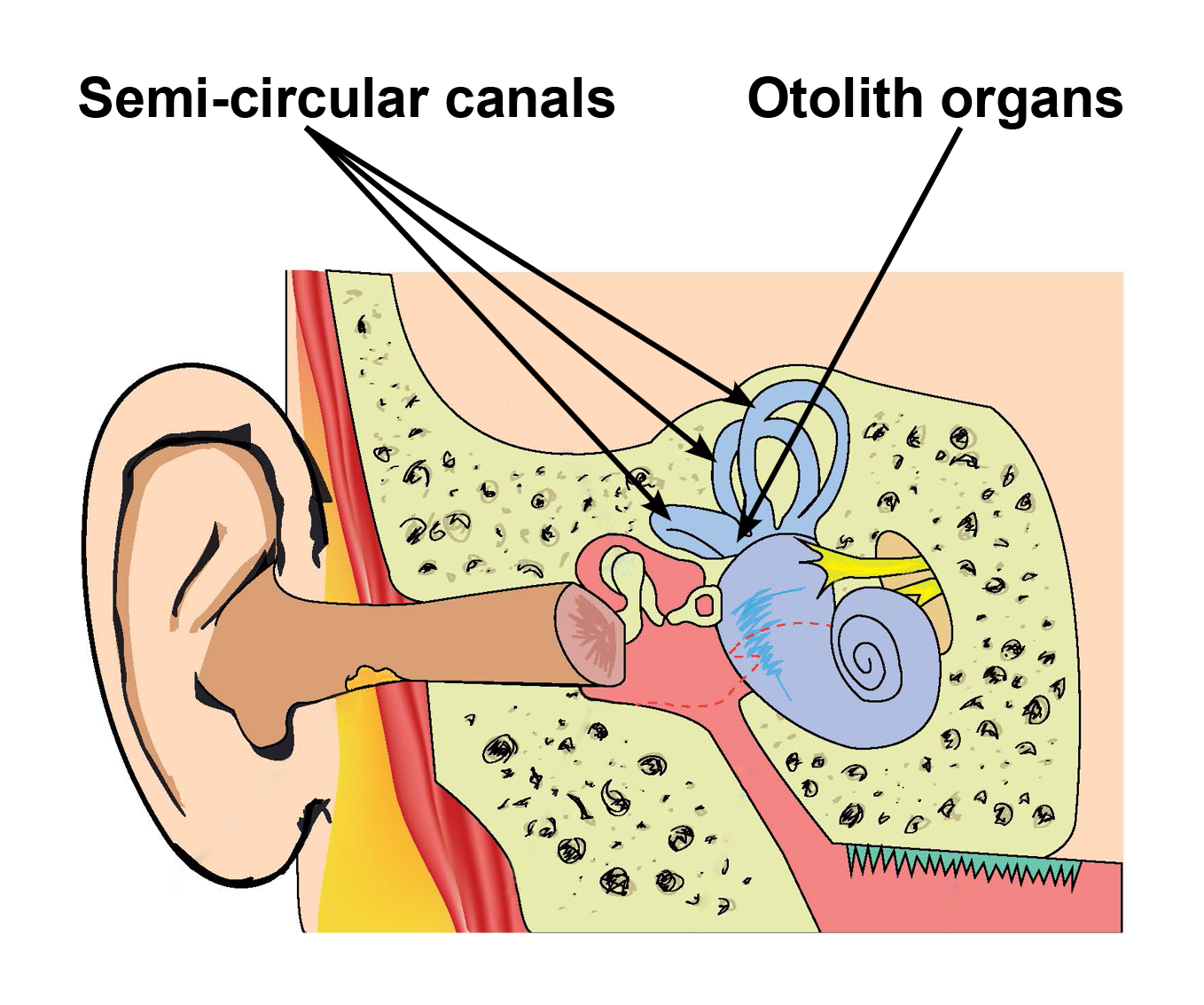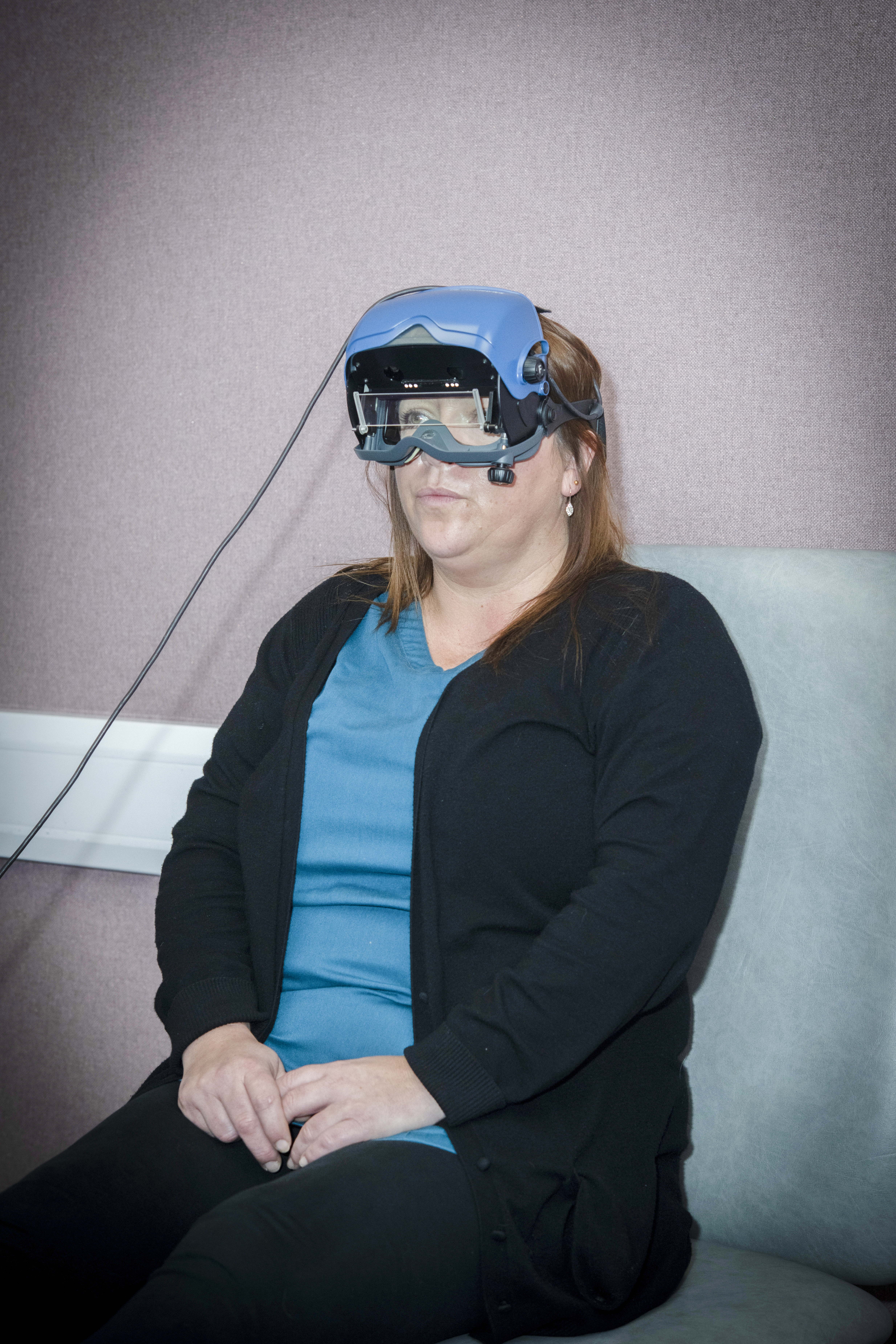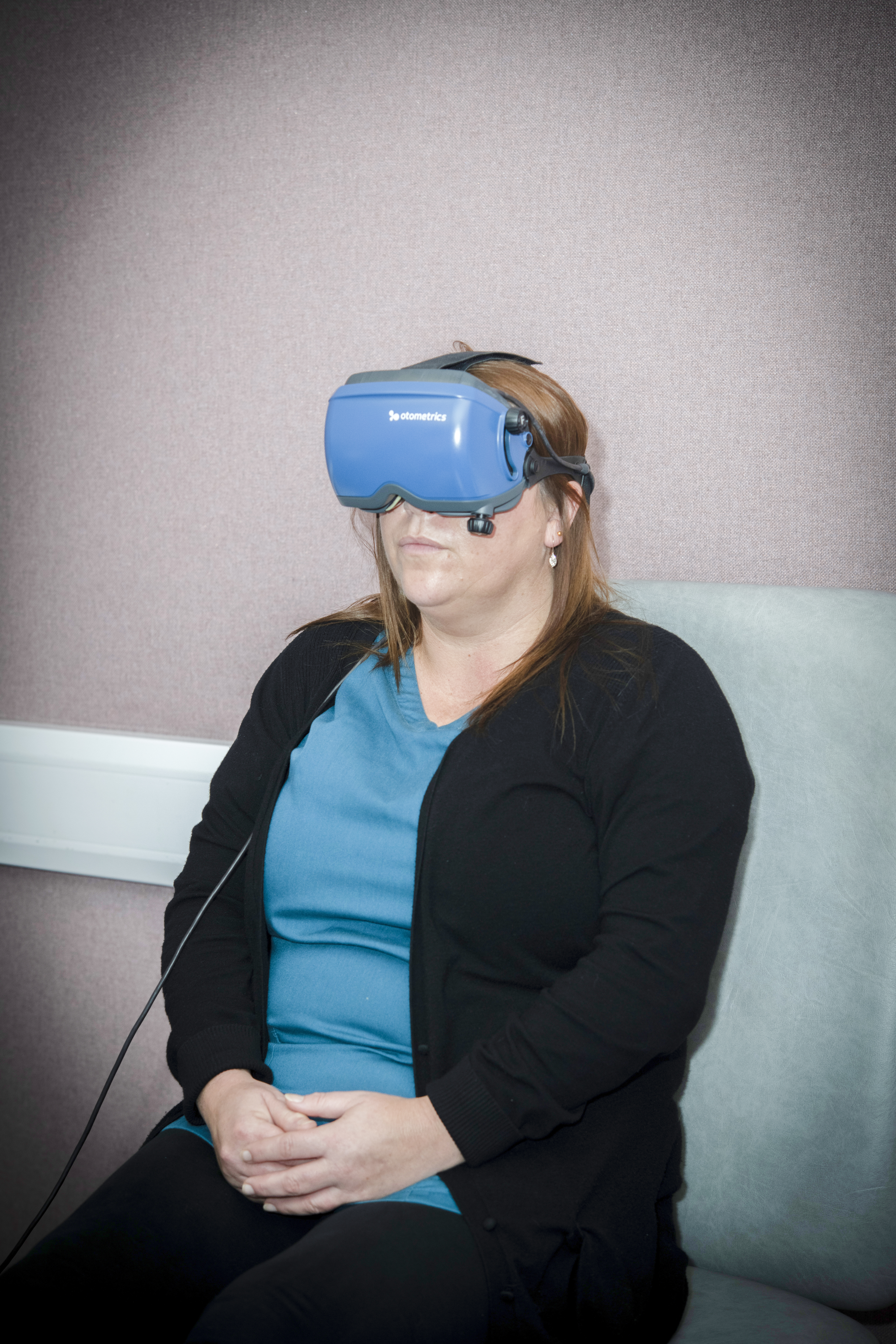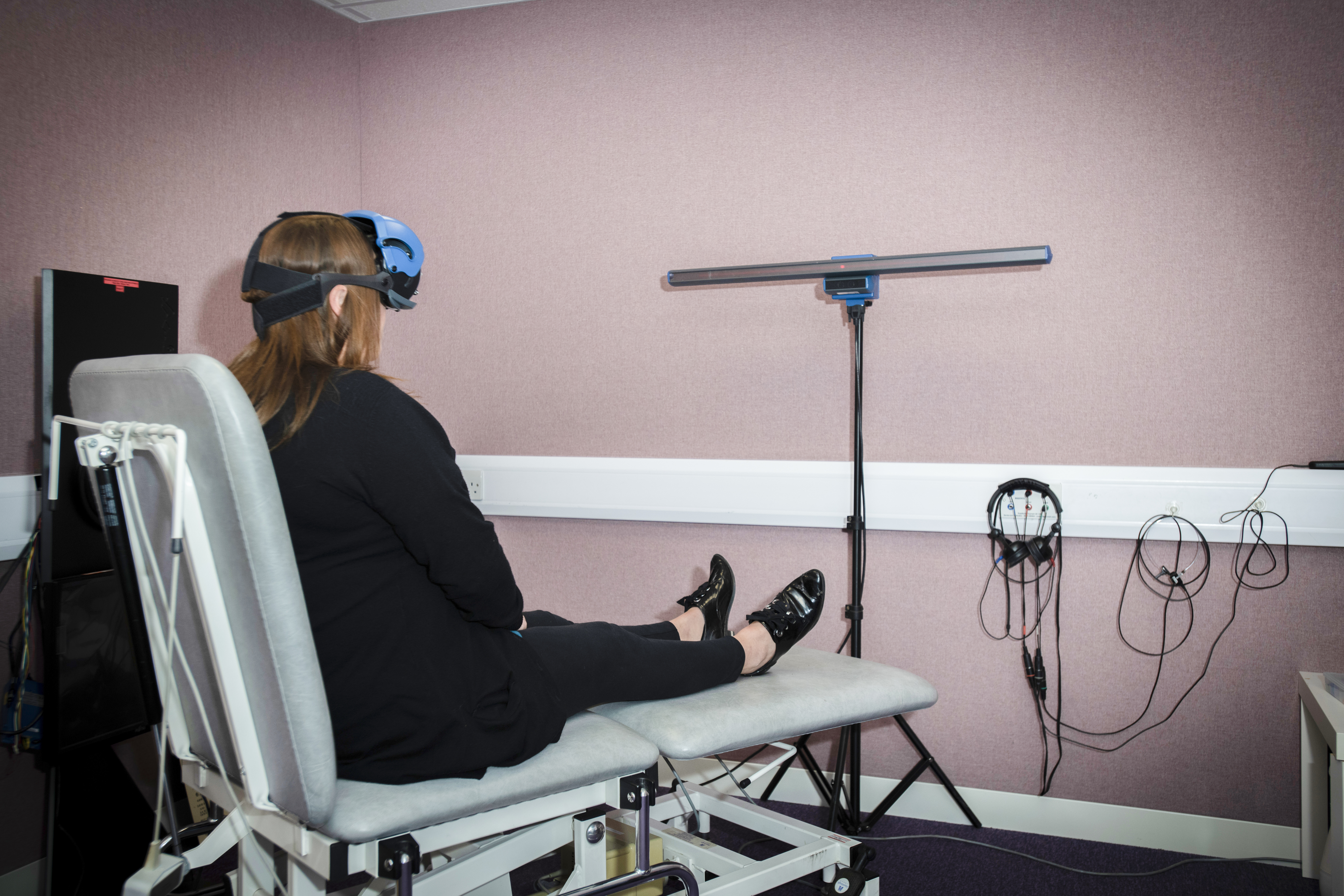Balance testing: what is it all about?
Information for patients from Audiology
You have been referred to the hospital by your ENT (ear, nose, and throat) consultant, so we can find out what is causing your balance problems. This leaflet will explain what tests you have been referred for to find the cause of your symptoms. If after reading this leaflet you have any questions, please contact the Audiology Department.

What is the vestibular (balance) system?
Your vestibular (balance) system is found within your inner ear. The vestibular organs contain a fluid called endolymph. When you move your head, this fluid begins to flow causing tiny hair cells to move and send messages to the brain about your movement.
Each ear has three semi-circular canals (also known as the vestibular system) which respond to rotational movement, and two otolith organs which respond to tilting movements.
Your vestibular system allows you to sense where you are in relation to the things around you, and to perform the correct movements to steady yourself. If there is a problem with your vestibular system, your ability to keep your posture and balance may be weakened, and you will rely more on other cues such as vision and proprioception (feeling in your muscles and joints).
Why are my eye movements checked?
When testing the vestibular system, we check your eye movements as well. This is because eye movements are very closely related to how balance works. As your vestibular system senses movement to one side, a reflex reaction moves your eyes in the opposite direction.
However, if there is a problem within your inner ear, you may feel you are moving even when you are still. Your eyes will then try to compensate for this, resulting in an abnormal eye movement (beating of the eyes) known as a nystagmus.
To check your eye movements we use a set of goggles with cameras in. These allow us to see your eyes clearly, even in the dark. The goggles allow your eye movements to be tracked and recorded by a computer. To allow us to do this you will be asked to keep your eyes open throughout the testing, even when in the dark.
What should I do before my appointment?
Please check with your GP that your ears are clear of wax.
Do not drink alcohol for 48 hours before testing.
Do not take any anti-dizziness / vertigo medication for 48 hours before testing. If this causes any problems, please contact your GP. You must continue to take all other medications as told by your GP.
Bring your anti-dizziness medication to your appointment, as you may wish to take some after your tests.
Please remove all eye make-up before your test.
You may bring an adult to your appointment for support. Please do not bring young children.
What will happen at my appointment?
Please refer to your appointment letter for where to go when you arrive at the hospital.
So we can diagnose and find possible causes for your condition, your clinician will go through the questionnaires you have completed and take a detailed medical history.
The vestibular tests may take up to 90 minutes to perform. You can go home once your tests are completed.
You will be asked to wear goggles and follow a moving red dot on a light bar with your eyes.
Your eye movements will be monitored by the goggles whilst you are in different sitting and lying positions, both in dim light and in the dark.
-
 Patients wearing goggle, with screen open
Patients wearing goggle, with screen open -
 Patients wearing goggle, with screen closed
Patients wearing goggle, with screen closed -
 Patient sitting, wearing goggles
Patient sitting, wearing goggles
Testing may also include a procedure called caloric irrigation, where your ear is stimulated with warm and cool air in turn. This may cause feelings of movement and unsteadiness, but it will not cause dizziness like you may have felt during an attack. Any feelings of unsteadiness will calm down shortly after the test is completed.
Video Head Impulse Testing (vHIT) will also be done. This involves turning your head in short sharp movements both horizontally (up and down) and vertically (side to side).
Cervical evoked myogenic potentials (cVEMP) may also be done. This involves placing sticky electrodes on your neck and forehand, and uses loud sounds through headphones to stimulate your balance organs.
None of the above tests will hurt, but if you have any concerns please speak to your clinician.
When will I get my results?
We cannot give you any results at your balance testing appointment.
Your results will be sent to the consultant who referred you for testing, and another appointment will be made for you to discuss the results with them.
What are my treatment options?
If you are told that your diagnosis is related to inner ear problems, you may be given rehabilitation exercises to help your body compensate for any vestibular dysfunction. You may be sent for physiotherapy or to a vestibular rehabilitation centre for help with your recovery.
You may need further tests to rule out other causes of your dizziness.
Can I drive home after my appointment?
No. Please arrange for someone to take you home after your appointment or use public transport.
Useful web sites
Contact details
If you have any questions or concerns about your balance tests, please contact the Audiology Department.
Audiology Department
Telephone: 01227 86 42 52 (lines are open 10am to 12 noon and 2pm to 4pm on Monday, Tuesday, and Thursday)
Email: EKH-TR.audiology@nhs.net